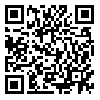Volume 3, Issue 3 (11-2009)
2009, 3(3): 25-35 |
Back to browse issues page
Download citation:
BibTeX | RIS | EndNote | Medlars | ProCite | Reference Manager | RefWorks
Send citation to:



BibTeX | RIS | EndNote | Medlars | ProCite | Reference Manager | RefWorks
Send citation to:
Golparvar M, Oreizi H R. Relationship between teacher well-being with the belief in a just world and students’ violence against teachers. Research in psychological health 2009; 3 (3) :25-35
URL: http://rph.khu.ac.ir/article-1-114-en.html
URL: http://rph.khu.ac.ir/article-1-114-en.html
1- , drmgolparvar@gmail.com
Abstract: (12367 Views)
This research was conducted with the purpose of studying the simple and interactive relationship between teacher well-being (Positive and negative affect and life and job satisfaction) with the belief in a just world and the student’s violence against teachers in Esfahan, Iran. Population of the study included all male and female teachers, teaching in the high schools in Esfahan in spring 2008.A sample of 240 male and female teachers were selected through multi-stage random sampling. Research instruments were: a 47-item job satisfaction questionnaire, 20-item positive and negative affection scale ,5-item life satisfaction scale,4-item questionnaire on student’s violence against teachers and 7-item questionnaire on the belief in a just world . Data was analyzed using Pearson’s correlation coefficient and hierarchical regression analysis. The results of hierarchical regression analysis revealed that the interaction between students’ violence against teachers and just world beliefs had not the predictive power for the prediction of positive affect, job and life satisfaction. But the interaction between students’ violence against teachers and just world belief had the predictive power for the prediction of negative affect. Posterior analysis also showed that only among teachers who were lower in just world beliefs , student’s violence against teachers has the predictive power for the prediction of negative affect
Keywords: Well - Being, Just world beliefs, Student s violence against teachers, High school teachers
Type of Study: Research |
Published: 2009/11/15
Published: 2009/11/15
Send email to the article author
| Rights and permissions | |
 | This work is licensed under a Creative Commons Attribution-NonCommercial 4.0 International License. |





